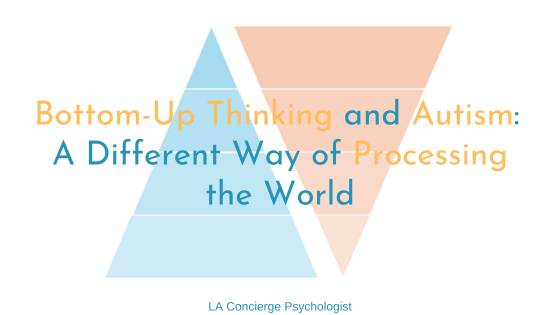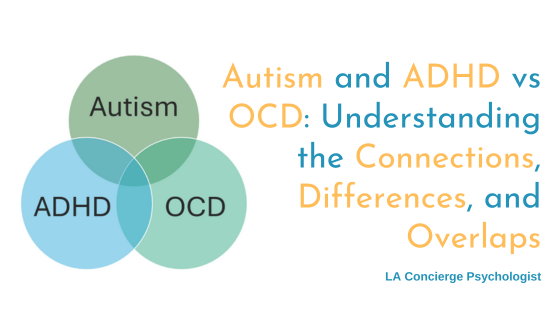Pros and Cons of Disclosure
Deciding whether to disclose your autistic identity is deeply personal. On one hand, doing so may allow you to live more authentically. It might become easier to stim around other people. You can be honest with people when something in the environment is triggering you or causing distress. Others might turn into great advocates once they understand more about autism and what it means in daily life. And it will likely help you deal with any ableist views you’ve internalized about autism.
There are also downsides to disclosing. Autism is misunderstood by many people. Telling people you are autistic might open you up to scrutiny, judgment, and ableist attitudes. People might get uncomfortable and distance themselves, or they could become critical and dismissive of your struggles. You may find that people start attributing all of your behavior to “your autism” as a way to dismiss you. It’s important that you know the people you disclose your autism to so you can get a better idea how they’ll react so that you can plan around your own needs.
Only an autistic person has the right to decide whether disclosure is right for them. Their environment, support system, and personal feelings about their neurotype are major factors in this decision, and those are different for everyone. It’s most important to understand the benefits and downsides so you can make an educated decision that feels safe and affirming.
To Whom to Disclose Your Autism
Once someone has decided to disclose their autism, they must decide who they want to tell. They should first decide the purpose of disclosing. If the purpose is to get accommodations, like at work or college, there might not be a lot of choice. It may be necessary to disclose your neurotype in order to access the supports you need.
Disclosing at Work
At work, the Human Resources department is usually the place to start. Legally, a company must provide reasonable accommodations for a disability, but there might be a lot of hoops to jump through even after you disclose your autism to your employer. If you decide to disclose, consider sharing the following information:
- How your autism affects your ability to perform key job tasks
- Types of accommodations that have worked for you in the past
- Types of accommodations you anticipate needing for your current job
But remember that, if you’re not seeking accommodations, you do not need to disclose your autism at work unless you want to.
Disclosing at College
At college, you go to the office for students with disabilities or office for student accessibility (the department is called different things at different schools) to request accommodations. Most universities require recent documentation from a testing psychologist or neuropsychologist as part of the application for accommodations. Some schools are moving towards less stringent application processes. You may find that your school only requires you to complete a form checking off what accommodations you desire (and not specify your diagnosis).
Disclosing to Friends and Family
Telling friends and family about autism is sometimes more emotionally complicated than telling an employer. This takes a lot more vulnerability. The most important thing is that you feel safe with the people you tell.
It’s important to pick people who have already proven themselves to be accepting, supportive, and non-judgmental. These individuals have likely made supportive comments regarding other marginalized communities. If you feel confident that your friend or family member wants to understand, support, and celebrate your autistic experience, they are a good choice. The person doesn’t have to already be very educated about autism; the important thing is that they are willing to learn and grow along with you.
Be mindful who you share your identity with. Disclosing to someone with ableist views about autism can harm your emotional well-being. The person may dismiss your autistic identity, start making microaggressions, or worse. Being around someone like this can sometimes cause people to second-guess their autistic identity. It may also cause you to further internalize ableist attitudes about yourself. They may be a loved one, but even people who care for you can be bad stewards of your mental health.
How to Disclose Autism
Once you decide that a person is safe to disclose to, there are ways to make the conversation easier. Autism receives a lot of ableist attention, so it might be necessary to plan the conversation to increase the chances it goes well.
Deciding What to Disclose Ahead of Time
It can help to come with some pre-planned talking points. The situation might feel stressful. If so, that may make it harder for you to know what you want to say in the moment. If you’ve planned ahead of time what you want to bring up, hopefully you’ll be more confident about your points.
There are a lot of parts to someone’s autistic identity, and it’s not required to lay everything out in the first conversation. If you feel most comfortable testing the waters, discuss a few central parts of your identity. You can save the rest for future conversations. Disclosure does not have to be a one-time conversation; it can be an on-going conversation.
Limit New (to them) Information
There are also some conversational strategies that might help someone move past their ableist views on autism more quickly. One strategy is to highlight things they already know about you, to bring them into familiar territory. For example, you could say “You know how I hate to drive, get really overwhelmed when things are loud, and can’t eat a lot of foods because of texture? These things are all part of my autism.” This way, you are telling them about the person they already know and love, and then just attaching a label to those familiar traits. The only new information they have to grapple with is the label describing those familiar characteristics.
Recognize It’s a Process
Sometimes, because of societal ableism, if you start by telling someone that you’re autistic, a lot of their preconceived notions might take over and cause them to do or say something hurtful. This doesn’t mean they won’t ever come around; they might just need more time. It’s important that they understand that autism isn’t something new; it’s been a part of you all along. And now that you’ve learned about your brain, they also need to step up and learn. Even if they don’t respond with immediate positivity, a willingness to learn is a great sign that they will be an excellent part of your support system in the future.
Making the Final Decision
Telling family and friends that you’re autistic is a very big decision. There are a lot of moving parts and all of them can have a significant effect on your mental health. So, it’s important to know why you’re telling people, what you hope to get out of the disclosure, and who you feel safe telling. Only you will know whether it’s the right thing to do in your situation.
If you want the people in your life to know about your autism, then you have every right to tell them. If you feel safer keeping your identity to yourself that’s okay too. You are not obligated to share it with anyone. There’s no “right” answer when it comes to disclosure. Make the choice that feels authentic for you.
Want Extra Support?
If you find yourself grappling with this decision for so long that you feel stuck, it may help to consult with an adult autism specialist. We’ve supported numerous autistic clients in deciding what felt comfortable for them. Send us a message to see how we can help or book a free 20 minute consultation call with Dr. Barajas or Dr. Goldman.



